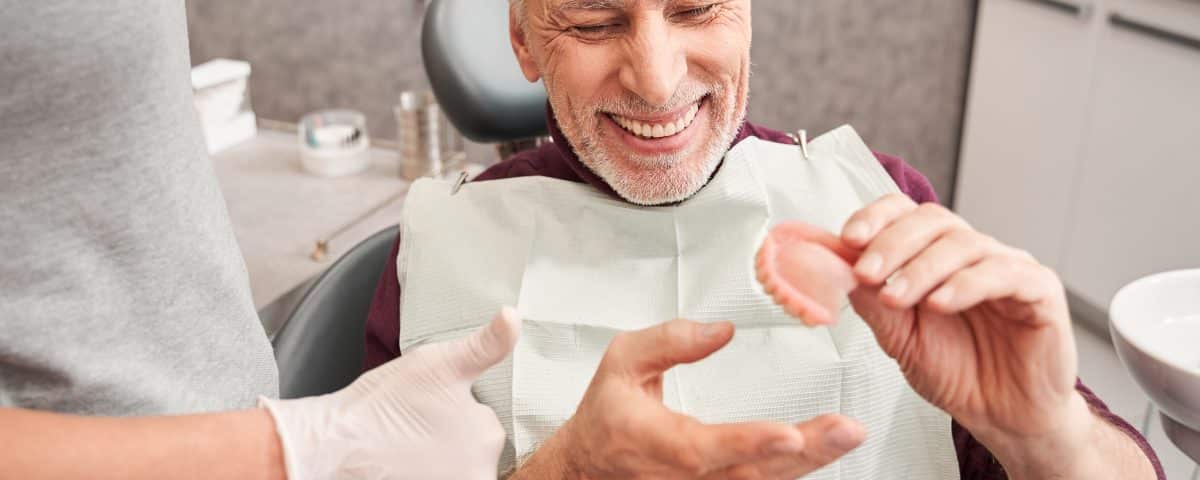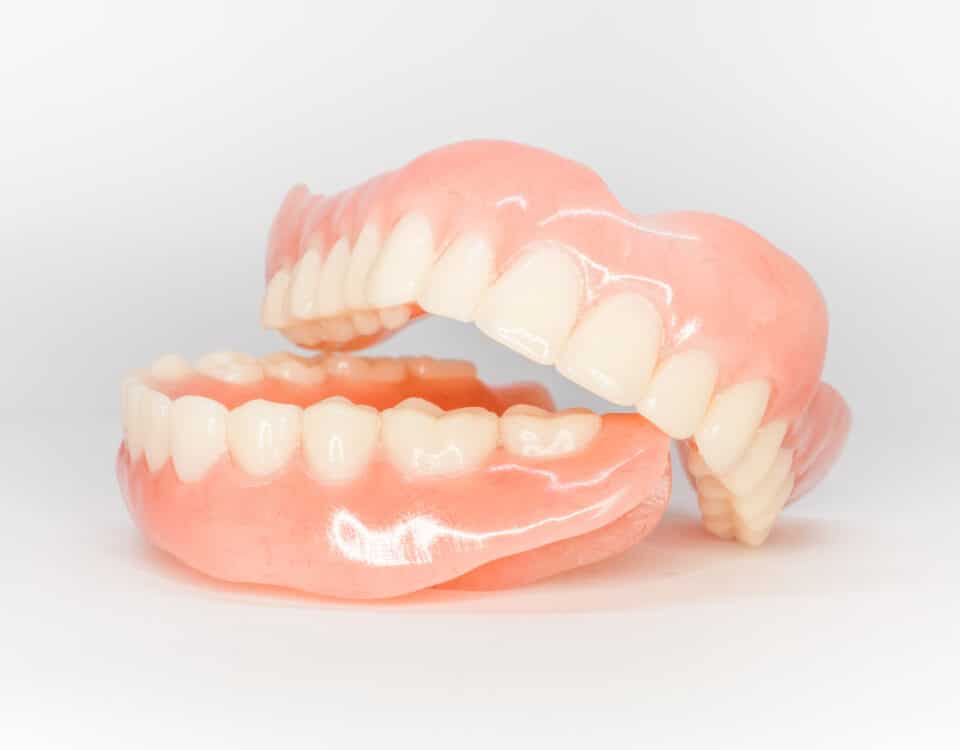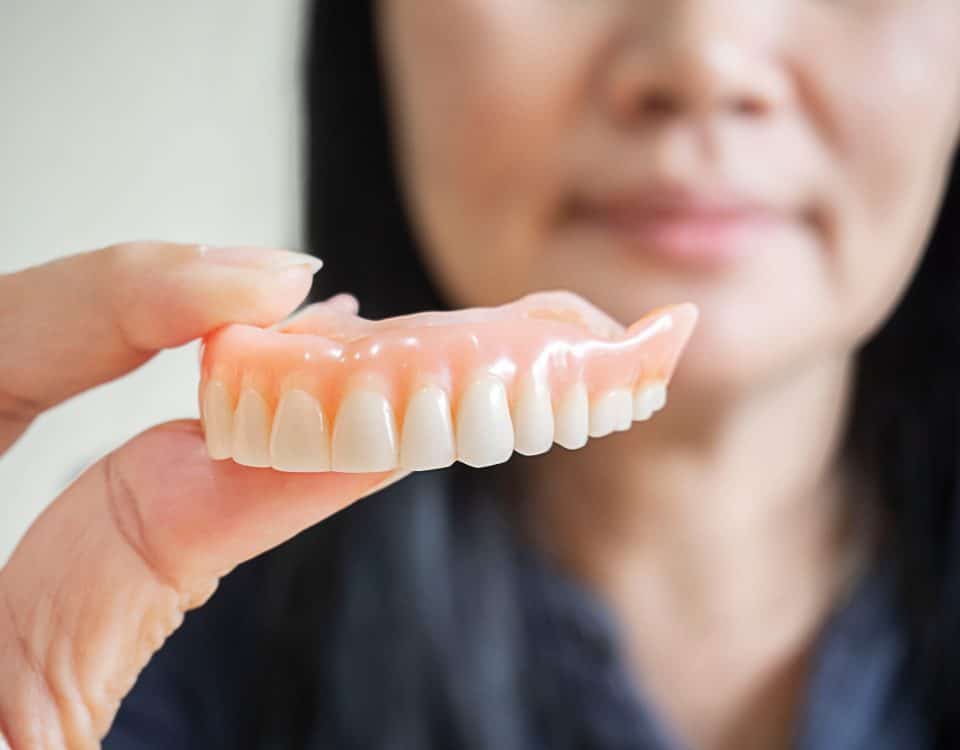Is it Time to Make the Switch to Dentures?

Why Sedation Dentistry is Beneficial to Anxious Patients
April 28, 2023
All You Need to Know About Root Canals: Root Canal Awareness Week
May 11, 2023Are you finding it difficult to chew your food or are you struggling with loose and missing teeth? If the answer is yes, then it may be time to consider dentures as an option. Dentures offer a practical solution for those who are looking to improve their oral health and regain their confidence. We’ll take a closer look at how dentures can help you and why now is the perfect time to make the switch.
What are Dentures?
Dentures are removable oral appliances that replace missing teeth in your upper jaw, lower jaw or both. Dental technicians craft dentures from materials like acrylic, resin, nylon, metal and porcelain.
Types of dentures
There are many different types of dentures. The option that’s right for you depends on your unique oral health needs. Cleveland Clinic explains the two most common types:
Full dentures
Also called a complete denture, this appliance replaces an entire arch of missing teeth. A full denture rests atop your gums and relies on your palate (the roof of your mouth) or lower jawbone ridge for support. You may need to use denture adhesive (a special type of glue) to keep your appliance firmly in place.
Full dentures are likely what comes to mind when you think about traditional dentures. They consist of artificial teeth and a gum-colored base.
People who wear dentures usually take them out at night to clean them and give their gums a rest.
Partial dentures
If you’re missing several or most of your teeth in one or both jaws, partial dentures may be an option. Partial dentures are similar to full dentures, as they also rely on your gums and underlying bone for support. But partial dentures also have special clasps that hook around your remaining natural teeth, providing additional stability.
Who Needs Dentures?
Dentures are suitable for almost anyone who’s missing one or more teeth. They may be recommended if you’re struggling with:
- Mouth discomfort due to loose or misaligned teeth
- Difficulty eating and speaking because of missing teeth
- Low self-esteem due to the appearance of your smile
The best candidates for dentures are patients that suffer from significant tooth loss due to injury, genetics, or periodontal disease. Sometimes, there are cases when dentures are not an option for patients. There has to be enough healthy gum tissue and jawbone structure for the denture to secure to. If needed, you can first restore the health of the gum tissue and/or bone structure (through bone grafts or other methods) if there isn’t ample material to allow the dentures to remain in place.
Patients that are considering dentures must be willing (and able) to properly care for their dentures in order to be an ideal candidate. Dentures require dedicated care and good oral hygiene habits to keep the patient’s mouth healthy.
The Benefits of Wearing Dentures
Making the switch to dentures comes with many benefits. Here are a few you can expect to experience:
- Improved oral health – Dentures help keep your remaining natural teeth healthy and strong by taking pressure off them. They also help maintain proper alignment of your teeth and jawbone, which is critical for optimal oral health.
- Boosted self-confidence – When you’re missing teeth, it can be hard to feel confident when smiling or speaking. Dentures bring back the look and feel of your natural smile and help you regain your confidence.
- Better comfort – You may find that dentures are more comfortable than loose or misaligned teeth. And if you wear partial dentures with clasps, they’ll fit more securely and comfortably than ever before.
After Care and Maintenance
After you make the switch to dentures, it’s important to take proper care of them. Here are some tips for keeping your dentures in the best possible shape:
- Brush your gums, tongue and roof of your mouth every morning with a soft-bristled brush before inserting your dentures.
- Make sure to soak your dentures every night in a cleaning solution or water to keep them moist and prevent them from drying out or warping.
- Visit your dentist regularly for an evaluation of how well your dentures fit and adjust if necessary.
- Handle your dentures with care, avoiding dropping or hard surfaces.
- Finally, don’t forget to brush your dentures at least twice a day with a soft-bristled brush and an approved denture cleanser.
- With the right care and maintenance, you can enjoy your dentures for many years to come.
Make the Switch Today
If your oral health is suffering because of loose or missing teeth, it may be time to make the switch to dentures. Contact Stonebrook Family Dental today to learn more about these removable appliances and find out if they’re the best option for you. With Stonebrook Family Dental on your side, you can get back to enjoying life with a beautiful and healthy smile.
No matter what stage of life you’re in, it’s never too late to make the switch to dentures and start enjoying the many benefits they have to offer. Contact us today and let us help you get started.



